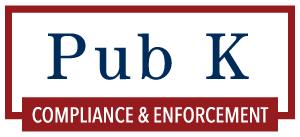The district court granted the defendants’ motion to dismiss a qui tam case alleging they conducted medically unnecessary toxicology tests, finding that the complaint was barred under the first-to-file bar. The defendants cited a previous case involving the same defendants and substantially the same allegations, which was pending when the relators here filed their complaint. The relators argued that because their amended complaint was filed after the original complaint was settled, the bar did not apply. Noting a Circuit Court split, the court held that amendment did not cure the first-to-file bar, because an amendment may bring a new complaint, but does not result in the filing of a new action. On the merits, the court found that both complaints alleged a nationwide scheme, described the same basic operative facts, and identified substantially the same defendants. While the current complaint named as a defendant the corporate parent of the defendants in the other case, the court found the defendant here was identified in the other complaint, merely not as a defendant. That distinction was not enough to persuade the court that the cases were substantially different.
Defendants H.I.G. Capital LLC and H.I.G. Surgery Centers LLC moved to dismiss the relators’ second amended complaint alleging they ordered medically unnecessary drug tests, resulting in fraudulent billings to Medicare.
H.I.G. Capital is a private equity firm that bought out Surgery Partners, a national network of surgical facilities and ancillary services, including pain management services. On the same day at the buyout, an H.I.G. affiliate—Bayside Capital Inc.—entered into a management agreement with Surgery Partners, through which Bayside and H.I.G. provided management, consulting, and financial advisory services. H.I.G. also placed several representatives on Surgery Partners’ board, through which is exercised considerable control over the company.
Through this corporate arrangement, the companies created Logan Laboratories LLC to conduct toxicology testing. According to the relators, Logan was dependent on referrals from Surgery Partners’ physicians. The relators alleged that H.I.G. directed physicians employed through Surgery Partners to order more expensive laboratory toxicology tests, rather than less expensive in-office tests, regardless of whether lab testing was warranted. According to the relators, this resulted in the submission of millions of dollars’ worth of false claims to Medicare.
The relators made specific allegations about the scheme, including that Surgery Partners executives pre-selected patients for the more expensive testing and obtained samples before the patients were even seen by a physician. The relators also alleged the defendants fraudulently obtained patient consent for the toxicology screenings by falsely representing that these tests were required multiple times per year. The defendants established policy requiring all patients with government-provided insurance to be referred to Logan Labs, prohibited physicians from conducting less expensive in-office tests, and pressured physicians who did not make enough referrals. The relators alleged Surgery Partners created false records to support the medically unnecessary testing and that Logan Labs performed more tests than necessary, billed for tests that were conducted, and otherwise inflated its billings.
Finally, the relators alleged various kickback schemes, first asserting the defendants routinely waived co-payments for government healthcare beneficiaries so that they would not complain about the cost of the tests. The relators also alleged that physician compensation was tied to these referrals.
The government intervened in the case and settled with multiple defendants, including Logan Labs. The government did not intervene with respect to the H.I.G. defendants, but noted that its investigation was ongoing. The case was unsealed and the defendants filed this motion to dismiss.
H.I.G. raise four arguments in support of dismissal. First, it argued that the SAC brought claims that were already released by the government and the relators in the settlement agreement. Second, the defendants claimed that the complaint was barred by the first-to-file bar. The defendants also argued the complaint failed to state a claim and that it failed to plead the allegations with particularity.
The court began its analysis with the argument that the claims were prohibited by the first-to-file bar. H.I.G. argued that previous relators already brought identical claims against Logan Labs and Surgery Partners. The relators in that earlier case filed on August 22, 2016. While that case was pending, the relators in this case filed on April 25, 2017. The government eventually intervened and settled the first case in April 2020. However, the relators argued that their second amended complaint—which focuses on the allegations against H.I.G.—was filed in June 2020, after the first case had been dismissed.
The court thus examined the question of whether the amendment of a complaint cures or changes the first-to-file analysis. The court noted that those Circuits that have addressed this question are split on the answer. The Second Circuit and D.C. Circuit have held that the pertinent date is when the original complaint was filed in the second action. In contrast, the First Circuit has held that the filing of a second complaint can dissolve the jurisdictional bar.
The district court adopted the view of the Second and D.C. Circuits. First, the court concluded that allowing an amended complaint to defeat the first-to-file bar runs counter to the plain terms of the statute, which states that an action cannot be brought when a first-filed action is pending and that amendment does not bring a new action, but merely brings a new complaint to that action.
Because the earlier case was still pending when the relators filed their original complaint in 2017, the court concluded the first-to-file bar would apply if the cases were related. Taking judicial notice of the earlier case, the court examined whether the complaints were related.
The relators argued they alleged a materially different scheme, first noting that H.I.G. was not named in the earlier complaint and no allegations were made about H.I.G.’s role. The court acknowledged H.I.G. was not named as a defendant, but found it was identified as a corporate parent of Surgery Partners and Logan Labs. Further, read in its entirety, the original complaint alleged a broad, nationwide scheme regarding the submission of claims for medically unnecessary toxicology tests.
The court also found the complaints alleged many of the same operative facts underlying the scheme. While the latter case alleged some different details, the court noted that the precise way in which Surgical Partners implemented its scheme was not a material element of the fraud. The court also could not discern a difference in scope. While the relators here named more defendants, both complaints alleged a nationwide scheme. Overall, the court concluded the complaints were substantially similar.
While the relators argued the earlier case did not put the government on notice of H.I.G.’s liability, the court explained that the relevant standard is whether the relators alleged a scheme that the government would already be prepared to investigate based on the first complaint. The court held that they had, and found the complaint barred by the first-to-file bar. The court dismissed the complaint without prejudice.




